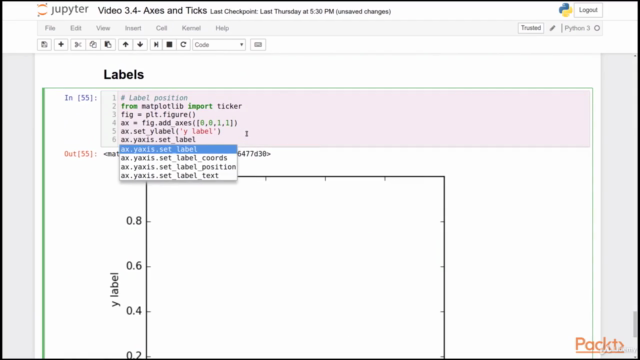Learning Path: Python:Data Visualization with Matplotlib 2.x

Why take this course?
Given the expertise of the authors you've mentioned, let's delve into how you can utilize Matplotlib for advanced data visualization in Python. Matplotlib is a comprehensive library for creating static, animated, and interactive visualizations in Python. It's widely used in scientific research due to its flexibility and support for various types of data.
Here are some key points and tips for performing advanced data visualization using Matplotlib:
1. Installation and Basic Setup
Ensure you have Matplotlib installed in your Python environment. You can install it using pip:
pip install matplotlib
2. Creating Basic Plots
Start with a simple plot to understand the basics:
import matplotlib.pyplot as plt
x = [1, 2, 3, 4, 5]
y = [10, 20, 25, 30, 40]
plt.plot(x, y) # Simple line plot
plt.xlabel('X-axis label')
plt.ylabel('Y-axis label')
plt.title('Basic Plot')
plt.show()
3. Enhancing Plots with Subplots and Multiple Data Sets
You can create multiple plots on the same figure:
fig, axes = plt.subplots(2, 2)
axes[0, 0].plot(x, y, label='Dataset 1')
axes[0, 1].plot(x, y, linestyle='--', label='Dataset 2')
axes[1, 0].scatter(x, y, color='red', label='Dataset 3')
axes[1, 1].bar(x, [1, 2, 3, 4], label='Dataset 4')
axes[0, 0].legend()
plt.show()
4. Customizing Plots
You can customize your plots extensively:
- Use different plot types (line, scatter, bar, etc.)
- Customize axes, limits, and ticks
- Add text annotations, legends, and grid lines
- Use color, patterns, and markers to differentiate data sets
5. Styling and Themes
Matplotlib allows you to set the style of your plots:
plt.style.use('seaborn-darkgrid') # This will apply a predefined style
6. Interactive and Animated Plots
For interactive plots, consider using libraries like Plotly or Bokeh which can be integrated with Matplotlib:
from plotly import offline as plt_offline
import plotly.graph_objs as go
data = [go.Scatter3d(x=[0, 1], y=[0, 1], z=[0, 1], mode='markers', marker=dict(size=10))]
layout = go.Layout(title='3D Plot')
fig = go.Figure(data=data, layout=layout)
plt_offline.plot(fig, filename='3d-interactive-plot.html')
7. Statistical Plots and Error Bars
Matplotlib can create advanced statistical plots like box plots, histograms with error bars, etc.:
import numpy as np
x = np.arange(0, 5, 0.1)
y = np.sin(x) + np.random.randn(*x.shape) * 0.2 # Adding some noise
plt.errorbar(x, y, yerr=0.2, capsize=5, fmt='o-', label='Sine with Noise')
8. Working with Large Data Sets and Performance Optimization
For large data sets, consider sampling the data or using pandas integration for better performance:
import pandas as pd
df = pd.DataFrame({'x': [1, 2, 3], 'y': [4, 5, 6]})
df.plot(kind='scatter', x='x', y='y')
9. Saving and Exporting Plots
You can save your plots to various formats:
plt.savefig('static_plot.png')
10. Advanced Features
- Use transformations and projections for complex data visualization (e.g., geographic data)
- Integrate with other libraries like Dask or PySpark for distributed data processing
11. Community Resources
- Explore Matplotlib's gallery for inspiration and examples
- Utilize community contributions in the form of extensions and plugins
12. Continuous Learning
- Keep up with new releases and features added to Matplotlib
- Learn from the source code and readable documentation
Remember, visualization is as much about understanding your data as it is about presenting it effectively. The key to advanced visualization is to combine creativity and domain knowledge with the powerful tools provided by libraries like Matplotlib.
Course Gallery




Loading charts...